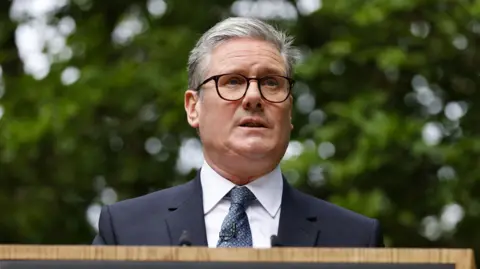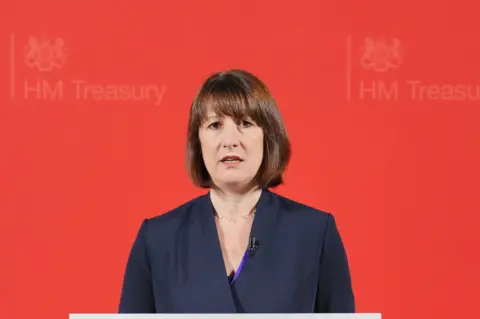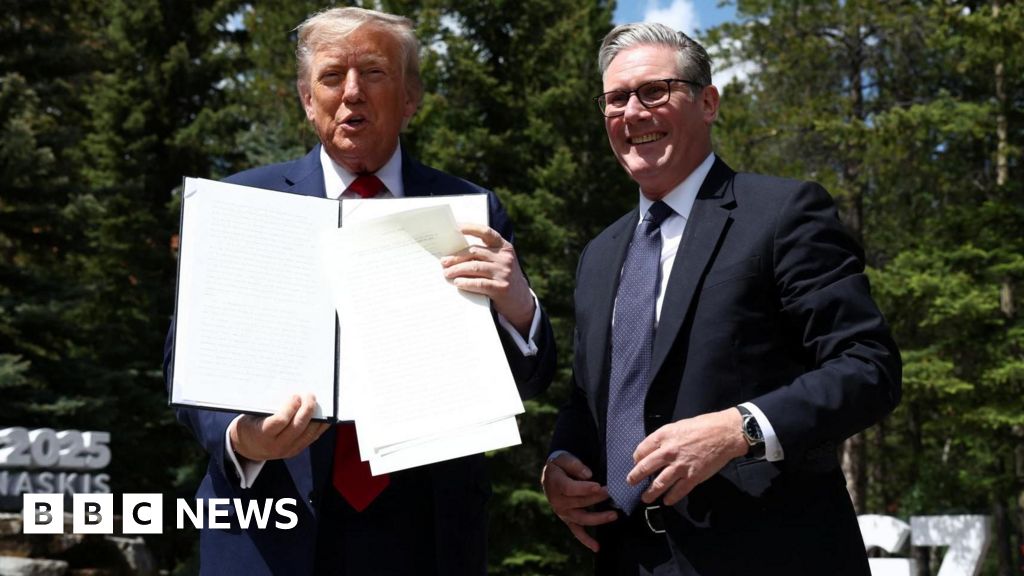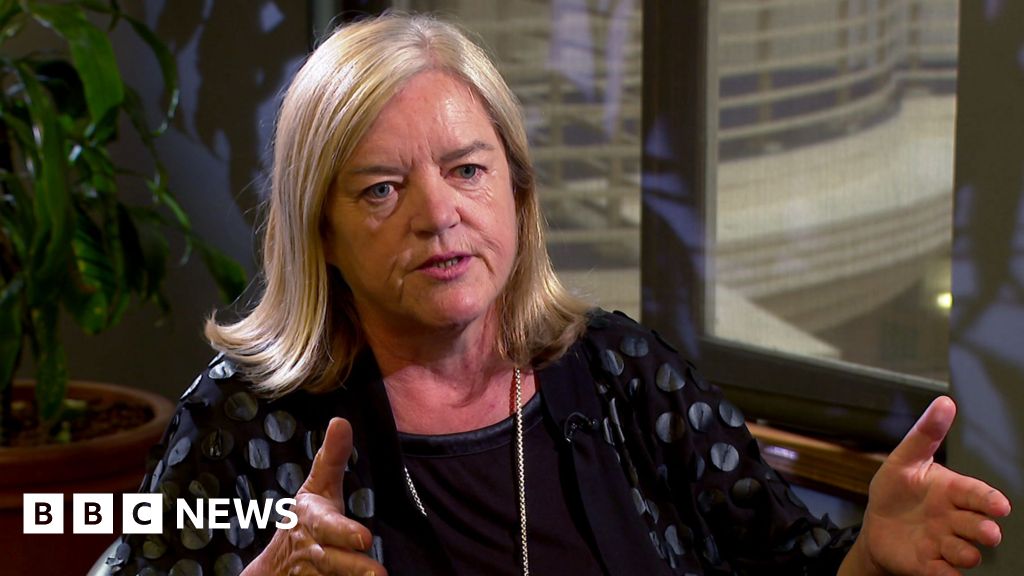ARTICLE AD BOX

 EPA
EPA
Sir Keir Starmer’s honeymoon is over.
The prime minister has spent the summer preparing the ground for unpopular and controversial spending and taxation decisions. He wants to persuade voters not to blame him, but the governments who came before. The Conservatives, he argues, left the country’s finances in such a mess that there’s going to be some pain in fixing them.
The message has been bleak – deliberately so. Ministers want to let the public know the next few months are not going to be a walk in the park. The government hasn’t ruled out increasing capital gains tax, inheritance tax and fuel duty in October’s Budget, arguing that difficult decisions are needed to "fix the foundations" of the British economy.
But might No 10 be going too far?
Privately, some Labour MPs think so.
“It’s a bit too doom and gloom,” said one, calling for more of a focus on the positive message the government has to sell.
Another agreed, contrasting the enthusiasm and energy of the Democratic National Convention in Chicago (attended by several senior Labour figures) and the hard truths message from Sir Keir in the Downing Street garden a few days later. The razzmatazz versus the gloom.
There are some signs ministers might be thinking the same. In the next fortnight, the chancellor will focus more on Labour’s promises to grow the economy. Ministers are promising “the most packed legislative agenda in decades” to deliver changes to the housing market, energy market, railways and more.
There will also be a bill on "budget responsibility" – which will mean the government’s forecasters have to assess every major financial announcement in future.

 PA Media
PA Media
Chancellor Rachel Reeves could raise some taxes in the upcoming Budget
But one decision in particular is proving controversial already: removing Winter Fuel Payments for millions of pensioners not on pension credit.
It’s a warning sign for the government that they can blame others for the need to make tough decisions – but they will ultimately have to deal with any opposition to the decisions they make.
The backlash has grown over the summer break, with charities and opposition parties leading the charge. The Conservatives and Liberal Democrats want a vote on the change and a growing number of Labour MPs are privately worried about the decision and its political impact.
Rachael Maskell, the Labour MP who chairs the All Party Parliamentary Group for Ageing and Older People, told me: "This is not going to go away – the government cannot run away from it."
There is an acceptance that a universal payment for all pensioners – including wealthy people – is hard to justify. The government is planning another campaign to encourage people who are eligible to sign up for pension credit as soon as possible.
But several Labour MPs I spoke to this week expected some mitigations to be announced in the coming weeks for those who are just above the pension credit threshold but still struggling.
Ideas being floated include support to people on certain council tax bands, as suggested by the personal finance expert Martin Lewis.
At the moment the Treasury isn’t budging. The chancellor writes today: “I know these are tough choices, especially on winter fuel. They were not the choices I wanted to make or expected to make, but they were the right choices to put our country on a firmer footing. Because by taking the tough decisions now to protect the public finances, we can begin the process of change.”
Some Labour MPs have been frustrated by a perceived lack of engagement from the department on the backlash they are seeing in their email inbox. The only hint at the moment is that councils in England will get cash to help people with the cost of living this winter – when the Household Support Fund is likely extended.
Let’s be really clear: these nerves in the Labour ranks are far less significant than the regicidal rebellions we’ve seen over the past few years among Conservative MPs.
Sir Keir has a thumping majority and can largely do what he wants in Parliament. The decision to remove the whip from seven MPs after the first rebellion – on the two-child cap for some benefits – has reduced the likelihood of another one over this issue.
The government also wants to announce the hard stuff now so that it feels like a distant memory by the time of the election. But that strategy isn’t without risks.
The Conservatives, despite being a massively depleted force in Parliament, have landed some blows over the summer. They’ve accused the government of prioritising pay deals over benefits for pensioners. There have also been several accusations of cronyism after people with links to the Labour party were given civil service jobs.
The risk for Sir Keir isn’t that his party turns against him but that some of these accusations start to stick.
Labour is doing everything it can to shape the political narrative for the coming months by arguing it has a big mess to clear up. But plenty of others will be trying to do the same, arguing that Labour is going too far or is exaggerating the problems with its economic inheritance.
Remember, there are choices involved in everything the government is doing. It is a choice to rule out putting up major taxes that would raise more money. It is a choice to rule out more borrowing. And it is a choice to focus spending on pay deals rather than winter fuel payments. It is up to ministers to persuade you they are making the right choices.
There are plenty of other challenges around the corner for the government too. How to stop small boats crossing the channel. How to reduce NHS waiting lists. How to balance the needs of businesses and unions when new workers' rights legislation is passed. Fixing problems in the court and prison systems. I’m sure most people reading this would have something else to add to the list.
It won’t be an easy few months for the new government. But some in Labour ranks are hoping they can do more to balance the gloom – with some optimism.

 9 months ago
27
9 months ago
27








 English (US) ·
English (US) ·